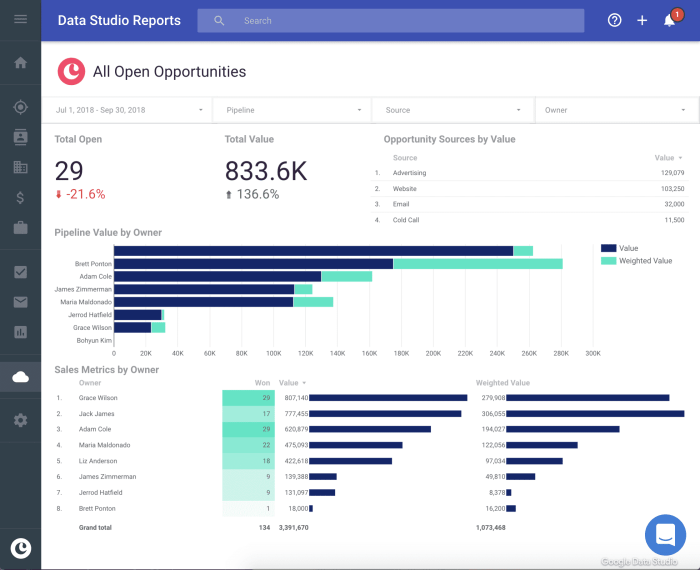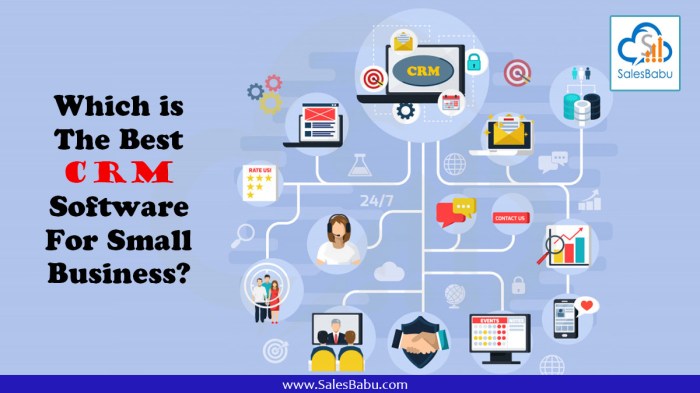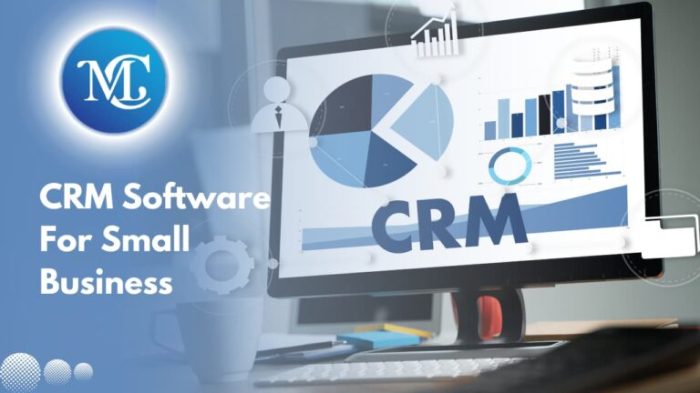Cheap crm software for small business – Finding the right Customer Relationship Management (CRM) software can feel overwhelming, especially for small businesses operating on a tight budget. Fortunately, numerous affordable and effective options exist, catering to diverse needs and scales. This comprehensive guide explores the landscape of cheap CRM software, helping you navigate the choices and select the perfect fit for your business. We’ll delve into features, pricing models, key considerations, and frequently asked questions to empower you in making an informed decision.
Understanding Your CRM Needs: Before You Begin Your Search
Before diving into specific software, it’s crucial to define your business requirements. What are your primary goals for implementing a CRM? Are you looking to improve customer service, streamline sales processes, manage marketing campaigns more effectively, or a combination of these? Consider these key aspects:
Key Considerations for Small Businesses:
- Budget: Determine your maximum budget. Cheap CRM doesn’t necessarily mean low quality; many excellent options offer competitive pricing.
- Number of users: How many employees will need access to the CRM?
- Features: Prioritize essential features. Do you need contact management, sales pipeline tracking, marketing automation, reporting, or integration with other tools (e.g., email marketing platforms)?
- Scalability: Will the software grow with your business? Can you easily add users or features as your needs evolve?
- Ease of use: Choose a CRM with an intuitive interface that’s easy for your team to learn and use.
- Customer support: What level of customer support is offered? Reliable support is crucial, especially when dealing with technical issues.
Types of Cheap CRM Software for Small Businesses
The market offers various types of affordable CRM solutions, each with its strengths and weaknesses. Understanding these categories will help you narrow down your options:
1. Free CRM Software (with limitations)
Several providers offer free CRM plans, often with limited features and user capacity. These can be ideal for startups or solopreneurs with basic needs. However, be aware of potential limitations regarding storage, functionality, and customer support. Examples include HubSpot CRM (free plan available) and Zoho CRM (free plan available). While “free” is tempting, carefully weigh the limitations against your future growth potential.
2. Affordable Paid CRM Software

Source: productivityland.com
Many vendors provide paid plans with competitive pricing, especially for small businesses. These plans usually offer a wider range of features and increased user capacity compared to free versions. Pricing models vary, including monthly subscriptions, annual subscriptions, and sometimes even per-user pricing. Examples include Bitrix24, Freshsales, and Agile CRM. These often come with robust features at a fraction of the cost of enterprise-level solutions.

Source: salesbabu.com
3. Open-Source CRM Software
Open-source CRMs are free to use but require technical expertise for setup, customization, and maintenance. This option might be suitable for businesses with in-house IT capabilities. However, it typically requires more upfront investment in time and resources. Examples include SuiteCRM and SugarCRM. Remember that while the software is free, you’ll likely incur costs for hosting, customization, and support.
Top Features to Look for in Cheap CRM Software
While the “cheap” aspect is important, don’t compromise on essential features. Here are some key functionalities to prioritize:
Essential CRM Features:, Cheap crm software for small business
- Contact Management: Store and manage customer information (name, email, phone number, company, etc.) efficiently.
- Sales Pipeline Management: Track leads, opportunities, and deals through various stages of the sales process.
- Task Management: Assign and track tasks related to customer interactions and sales activities.
- Reporting and Analytics: Gain insights into sales performance, customer behavior, and marketing campaign effectiveness.
- Email Integration: Integrate with your email client to manage communications directly within the CRM.
- Customer Support Features: Features to manage customer inquiries, track support tickets, and resolve issues effectively.
- Mobile Accessibility: Access your CRM data on the go via mobile apps.
Choosing the Right Cheap CRM: A Step-by-Step Guide
Selecting the best cheap CRM involves a systematic approach. Follow these steps:
- Assess your needs: Define your business goals and required features (as discussed earlier).
- Research different CRM options: Explore various platforms, comparing features, pricing, and user reviews.
- Test free trials or demos: Most vendors offer free trials or demos, allowing you to test the software before committing.
- Consider integrations: Ensure the CRM integrates with other essential business tools (e.g., email marketing, accounting software).
- Read reviews and compare: Check user reviews on platforms like Capterra and G2 to gain insights into user experiences.
- Make your decision: Choose the CRM that best aligns with your budget, needs, and long-term goals.
Frequently Asked Questions (FAQ)
Here are answers to some commonly asked questions about cheap CRM software:
- Q: Is cheap CRM software reliable? A: Reliability depends on the provider and the specific software. Many affordable CRMs offer robust features and reliable performance. However, it’s crucial to research and choose a reputable vendor.
- Q: Can cheap CRM software scale with my business? A: Some affordable CRMs offer scalability options, allowing you to add users or features as your business grows. However, it’s essential to consider your future needs when selecting a platform.
- Q: What are the hidden costs associated with cheap CRM software? A: Hidden costs can include additional fees for integrations, advanced features, user training, or customer support beyond basic levels. Carefully review the pricing and terms before committing.
- Q: How do I choose between cloud-based and on-premise CRM software? A: Cloud-based CRMs are generally more affordable and easier to manage, while on-premise solutions offer greater control but require more technical expertise and upfront investment.
- Q: What if I need more features later? A: Many affordable CRMs offer upgrade options, allowing you to add features as your needs evolve. However, be aware of potential price increases.
Resources
- Capterra : A software review website with detailed comparisons of CRM software.
- G2 : Another popular software review platform offering user reviews and ratings.
- HubSpot : A popular CRM provider offering a free plan and paid options.
- Zoho : A comprehensive suite of business applications, including CRM software.
Call to Action
Ready to streamline your business processes and enhance customer relationships? Start exploring the affordable CRM options discussed in this guide. Choose the perfect fit for your needs and watch your business thrive!
Questions Often Asked
What are the essential features to look for in a cheap CRM?
Essential features include contact management, lead tracking, basic reporting, task management, and potentially email integration.
How much should I expect to pay for cheap CRM software?

Source: mcstarters.com
Pricing varies greatly, but many affordable options fall within the $0-$50 per user/month range. Free options exist, but often have limited features.
Can I integrate a cheap CRM with other business tools?
Many cheap CRMs offer integrations with popular tools like email marketing platforms and accounting software. Check the specific CRM’s capabilities before purchasing.
What about customer support for budget-friendly CRMs?
Customer support varies widely. Look for CRMs with readily available online documentation, FAQs, and ideally, email or phone support, even at the lower price points.
